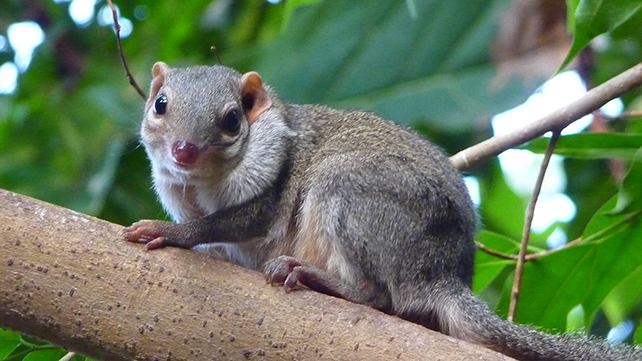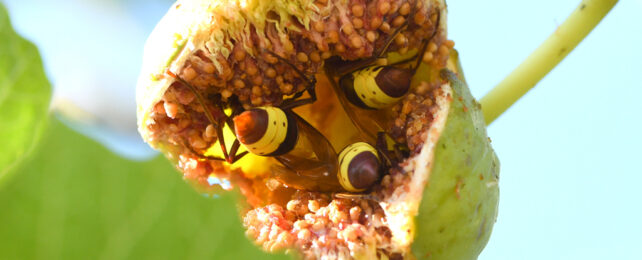The Oriental hornet (Vespa orientalis) doesn't have to worry about assigning a designated driver on a wasp night out, or recovering from a hangover in the morning. A new study identifies it as the only animal we know about that can't get drunk from alcohol.
Wasps naturally consume ethanol (the ingredient in booze that gets you drunk) as part of a diet which includes nectar and fruit. Yet while their attraction to alcoholic beverages cooked up by us is well documented, their relationship with naturally brewed booze is unknown.
Researchers from Tel Aviv University in Israel used V. orientalis as a model animal to test the effects of ethanol on wasps. After feeding the insects a sucrose solution with ethanol concentrations as high as 80 percent, the researchers didn't observe any adverse effects on the hornets' lifespans or behavior, including their ability to build nests.
Tagging the alcohol with a carbon isotope allowed the team to map changes to the compound as it was processed inside their bodies.
"As the alcohol is metabolized, it breaks down into carbon dioxide, which is exhaled," says zoologist Sofia Bouchebti.
"By measuring the amount of labeled carbon dioxide emitted, we were able to estimate the speed at which the alcohol was broken down."
The hornets' metbolisms dealt with the alcohol in double-quick time, breaking it down before it had chance to cause them to show any signs of the insect equivalents to staggering into the gutter, throwing up over themselves, or calling up an ex-partner in the early hours.
The researchers think this may be down to Oriental hornets having several copies of the alcohol dehydrogenase (NADP+) gene, which produces the enzyme that breaks down alcohol.
The insects also have an interesting co-evolutionary history with yeast, carrying brewer's yeast (Saccharomyces cerevisiae) in their digestive systems, before passing it on to fruits. As producers of alcohol, the transported brewer's yeast may have provided the wasps with further evolutionary incentive to develop their tolerance to the substance.
"The findings were very surprising; we were amazed to see the rapid rate at which the hornets metabolized the alcohol," says Bouchebti.

Even animals that can handle their booze – like the pentailed treeshrew (Ptilocercus lowii), for example – only do so up to certain concentrations. Put these drinkers on the hard stuff and the negative health effects take hold pretty swiftly.
While studies like this teach us more about the intricate workings of the animal kingdom, they're also hugely useful in providing models for research into alcohol consumption and tolerance in humans too.
The authors hope that their work can progress the understanding of our own boozing habits, and of the ways in which we can prevent deaths related to alcohol consumption – which is currently linked to 5.3 percent of all deaths worldwide.
"We believe that, following our research, Oriental hornets could potentially be used to develop new models for studying alcoholism and the metabolism of alcohol," says zoologist Eran Levin.
The research has been published in PNAS.
